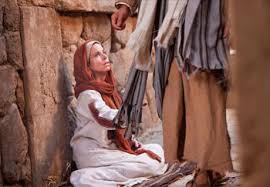 Q for Questions
Q for Questions
Questions – they are part of our life in many forms.
From our childhood, we learn to use them in all kinds of situations:
Where? When? How? Who? What? Why?
We want to know, to learn, to understand.
We ask questions from people around us and they do the same themselves.
But have you ever thought of the questions that… God addresses us?…
The first chapters of the Bible present us man being asked questions by God:
“God called to the man: ‘Where are you’?” (Genesis 3:9) – an existential question if ever there was one…
In the gospel, we see Jesus using this form of communication to arise the attention and sometimes provoke people around him.
“Which of you, having a donkey or an ox that has fallen into a pit,
will not immediately pull him out on the Sabbath day?”
And they could not answer Him regarding these things” (Luke 14:5-6)
“When he was in the house, he asked them, “What were you arguing about on the road?”
But they kept quiet because on the way they had argued about who was the greatest” (Mark 9:33-34).
On an other occasion, Jesus challenges his apostles by asking them a question about himself:
“What about you?” he asked. “Who do you say I am?” (Matthew 16:15).
These questions represent:
a challenge,
a call to become aware,
an interrogation inviting to a relation…
Then, one day, to those who shared life with him from day to day, Jesus asked a series of questions
that called them to see themselves as they were:
“Do you have eyes but fail to see, and ears but fail to hear?” (Mark 8:18).
You possibly see this as shock therapy!
Jesus probably saw that his apostles needed this…
Could it be that we, too, sometimes need this?…
And God’s method of searching with questions may bring us back to ourselves… and to him!
 The Syrophoenician woman we meet in today’s gospel (Mt.15:21-28) may not have known how to read, but…
The Syrophoenician woman we meet in today’s gospel (Mt.15:21-28) may not have known how to read, but… What is Hunger
What is Hunger